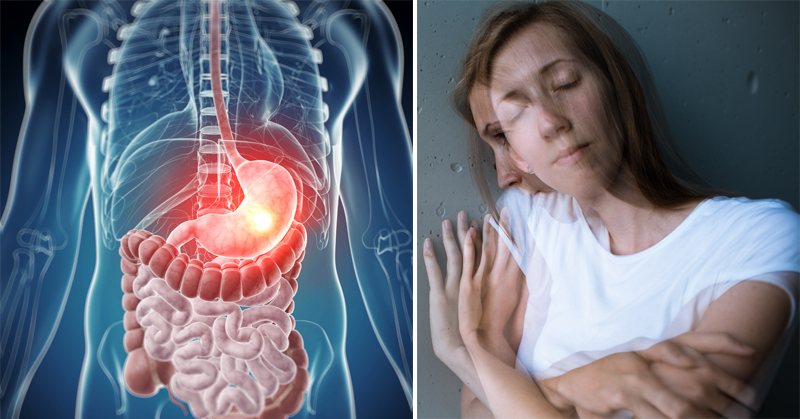More than 40 million adult Americans suffer from anxiety disorders, and although they are treatable, only 37% of these receive an anxiety treatment.
Since the number of people suffering from anxiety is on the rise, researchers constantly try to find the cause of the mental health issue.
Recently, the Harvard Medical School published an article which indicates that gut bacteria might be the main cause of it.
It explains the connection between the brain and gut in details, as the gut sends signals to the brain and vice versa. This connection is nothing new, but its effects on mental health are a revolutionary discovery.
Apparently, more than 90% of serotonin, which is the neurochemical responsible for stabilizing mood, is produced in the gut.
Additionally, the gut-brain signaling is affected by stomach or intestinal distress, and if this interference is significant, stomach or intestinal stress can “be the cause or the product” of anxiety, depression or stress.
Furthermore, according to the findings of researchers at the University of Cork in Ireland, gene regulators or genes that encode proteins play a fundamental role in anxiety illnesses, and bacterial levels in the gut directly affect them.
Namely, researchers injected a gene regulator called microRNA into mice, and it led to a high level of anxiety in mice which lacked proper gut bacteria, and in the case of mice with proper gut bacteria, the gene regulator reduced the previous anxiety symptoms.
Therefore, a healthy balance of bacteria in the gut is very important for the appropriate regulation of miRNA. According to Dr. Gerald Clark, the lead author of the study:
“This (study) is important because these miRNAs may affect (processes) fundamental to the central nervous system and in brain regions, such as the amygdala and prefrontal cortex (PFC).”
The amygdala is a brain part that is in charge of emotions, while the prefrontal cortex is accountable for functions like decision-making, planning, and social behavior.
These findings can be of great help to doctors and scientists in their attempts to find an effective treatment form of this disorder, which will target the gut instead of the brain.
The following video reveals useful tips on how to support your gut health, including a healthy natural juice recipe:
Sources:
www.davidwolfe.com
